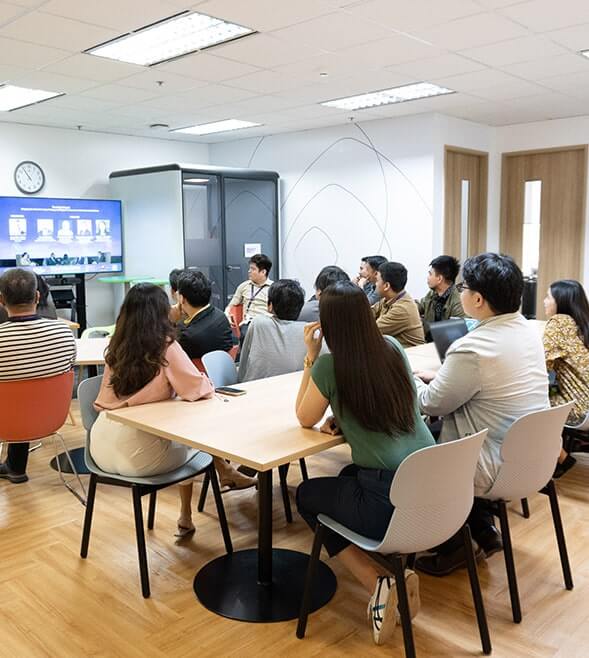As we live in a world where constant disruption and growing demands for accountability, Internal Audit (IA) plays a vital role in helping organizations become resilient and continuously evolving with the trends. When I moderated the recent Chief Audit Executive Forum hosted by P&A Grant Thornton, I gained a deeper understanding of how IA is stepping up to businesses. It highlighted how it is not limited to compliance checks, but it is now able to deliver assurance on sustainability performance through its newly implemented global standards. Here’s what I learned:
Rising to Meet New Standards
The forum highlighted lessons learned from the introduction of updated Global Internal Audit Standards (GIAS) by The Institute of Internal Auditors (IIA) in 2024. This updated framework sets a higher bar for performance and governance. These standards emphasize:
- Strong board involvement and oversight,
- A clear IA mandate, vision, and strategic plan,
- A deep understanding of risk and comprehensive coverage across the organization,
- Systematic planning, tracking, and measuring of audit performance, and
- Transparent reporting and effective communication of findings.
As the IIA notes, these changes help IA functions move from a narrow compliance focus to a broader advisory role that safeguards value and drives improvement across the organization. These new standards reflect the shifting expectations from stakeholders who now rely on internal auditors not only to confirm compliance but to also proactively identify opportunities for improvement, flag blind spots, and provide assurance that business processes can withstand rapid change.
Interestingly, we have embodied this role at P&A Grant Thornton. Our internal audit professionals help clients navigate these standards that fulfill their internal audit responsibilities. Our teams make sure clients understand what the new requirements mean for their operations and translate these complex standards into practical steps that build confidence and clarity. This shows that organizations can count on internal auditors as trusted partners to build long-term resilience.
Unlocking the Potential of Internal Audit
Moreover, IA also evolved from being just a compliance monitor to becoming a true strategic partner. It has been stated that high-performing internal auditors help organizations connect risk insights to operations and strategy, ensuring that plans translate into measurable outcomes and sustained value. In this way, IA helps organizations transform plans into results and results into sustained value.
This shift means that IA functions today must concentrate on emerging and complex risk areas guided by the new topical requirements and global guidance point to critical areas like cybersecurity, information technology governance, privacy risk management, sustainability and ESG, and third-party management.
Closing the Loop for Sustainability
Another key discussion point at the forum was the idea that sustainability programs function as a continuous loop: implement, measure, and improve. Yet this loop can only be completed when internal audit steps in to validate, refine, and influence strategy. IA’s unique position allows it to ensure order in sustainability efforts, align them with the organization’s broader vision, and provide external assurance that enhances credibility.
In addition, internal auditors are now expected to understand global frameworks, such as the International Sustainability Standards Board (ISSB) standards and local climate disclosure rules, so they can test how well sustainability goals are embedded in day-to-day operations.
Reinforcing this commitment, P&A Grant Thornton’s sustainability team also shared the Firm’s Sustainability Report during the said forum. This report includes our performance and progress for the year, and the programs we have built that demonstrate our dedication to transparency and accountability. This shows that credible sustainability reporting is necessary for organizations that aim to create a more sustainable change.
A Strategic Partner for Lasting Change
The future of IA depends on its ability to remain agile and forward-looking. As it has always been, internal auditors must demonstrate integrity, maintain objectivity and confidentiality, and exercise professional care in all aspects of their work. They must also plan strategically, manage resources wisely, and communicate results effectively ensuring that every engagement delivers value and supports the organization’s purpose.
But the world evolves, and we should do more than just safeguarding assets or flagging risks, we must unlock the full potential of IA’s functions through embedding themselves in strategic discussions and providing independent assurance, as well as helping shape resilient systems, nurturing a culture of accountability, and enabling lasting sustainability.
In the end, a resilient organization is one that anticipates uncertainty, adapts to change, and earns the trust of its stakeholders. Internal Audit has never been more vital in helping organizations navigate complexity and create positive impact in the long term.
As published in The Manila Times, dated 09 July 2025




